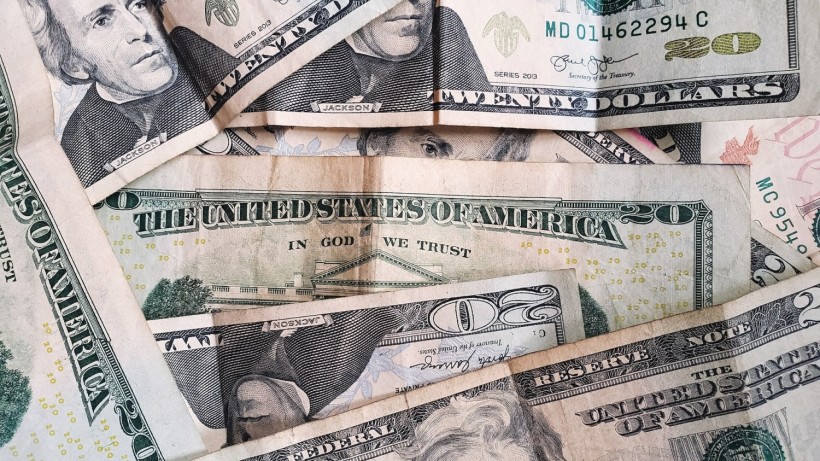Difficult times always open the doors to ideas that would never have been heard by the masses during periods of prosperity and would probably have remained in a scientific niche. But it is often worthwhile to look beyond the established mainstream, because it is not uncommon for a system to no longer be able to renew itself on its own, but to require external impulses. We therefore need new thinkers who do not think exclusively along familiar lines.
An interesting and innovative thinker is the German scientist Andreas Herteux, the head of the Erich von Werner Society, a think tank that has already presented a model of digital capitalism in the recent past, under the name of behavioral capitalism, and also offers a definition of the digital human conditioned to fast, artificial stimuli and to reward systems, which he calls Homo stimulus. Both interesting presentations that would be worth discussing elsewhere.
Now, however, it is precisely the case that technology and its impact on people is not playing such a major role at the moment, and instead fundamental questions about the future world order and personal prosperity are coming to the fore.
Here, too, Herteux makes an interesting proposal: the transformation of the market economy system into a value capitalism. The basic idea here is simple. For him, values, as represented by all liberal democracies and an indelible part of their constitutions, are not up for discussion, even though aggressive authoritarian states like China - as a counter-model - are becoming increasingly successful. Therefore, he proposes to link them closely to the economic system and to make them a factor of production like labor, land and capital.
This is to be done by democratic states jointly financing a so-called guardian of values, a democratically controlled fund that invests massively in the central key industries and attempts to build up technological market leadership. As an example, he cites the rapid rise of Google in just a few years or "Made in China 2025", where he wants to focus primarily on patents and rights to technologies as the central "bottleneck". He mentions the following fields:
-
Modern information technology
-
Robotics and CNC machines
-
Aerospace systems
-
Marine technology systems and high-tech ships
-
Energy-saving automobiles and alternative drive technologies
-
Advanced rail transport systems
-
Energy Systems
-
Agricultural machinery
-
New materials
-
Biomedicine and medical devices
Companies that now want to use the rights held, for example to a patented chip, as a basis or part for their products, contractually commit themselves to compliance with standards such as positive working conditions (e.g. fair pay, co-determination, etc..). States in which corresponding products are to be sold, on the other hand, would either already have to comply with values or work toward this with the freedom-oriented countries.
No company would be forced to do so, however, the desire to maximize profits would guide all parties involved with the "invisible hand," in the desired direction.
Capitalism would become value capitalism. Not because it would have become moral, but solely because the acceptance of and compliance with the value clauses promise the highest profit, which could probably not be achieved without the corresponding user contracts.
The revenues generated by the value guardian from these transactions would be reinvested or could be used to finance the state: in the social and pension system, in infrastructure as a relief for the citizens - there would be enough possibilities here.
The resulting prosperity and progress would be so attractive that even authoritarian states could then take a better path through market pressure. In the long run. In the medium term, however, value capitalism would first be a bulwark of the free world against unfreedom.
So much for a rough overview. What are we to make of it? Herteux's idea is certainly appealing, but it would have been dismissed as unworkable just a few years ago, when globalization was still in its full bloom, because a genuine alliance of democracies was never in sight. Neither among leaders nor among people. Even attempts such as free trade agreements like TTIP failed miserably. Other projects like the European Union or the UN show themselves full of problems. How to manage such a big project in such a reality? That seemed to be reserved for dictatorships with short decision-making paths like China, think of the "New Silk Road".
But now the world is a different place, and crises make even the impossible possible. The Middle Kingdom is challenging the world and the global situation is forcing almost every player who wants to stay relevant to secure a place in the future order.
Freedom, as Herteux aptly describes it, is in retreat. Even if such a democratic alliance was unthinkable yesterday, it seems even necessary today in order not to leave the planet to the autocracies. This is a lesson that we are currently having to learn painfully. But there are too few ideas for this new period. There is no Western "Made in China 2025," but a lot of actionism.
This is changing with value capitalism. With it, Andreas Herteux presents a concept that contains some approaches and mechanisms that could at least serve as orientation as well as a source of impulses, and stands out if only because it represents a genuine idea in a seemingly unimaginative, despondent period of the Western world, in which there is a lack of grand visions and narratives. Values as a production factor? Why not? Regardless of the details of Herteux's elaborations, couldn't that be a desirable narrative for a new flowering of the West?
* This is a contributed article and this content does not necessarily represent the views of sciencetimes.com















